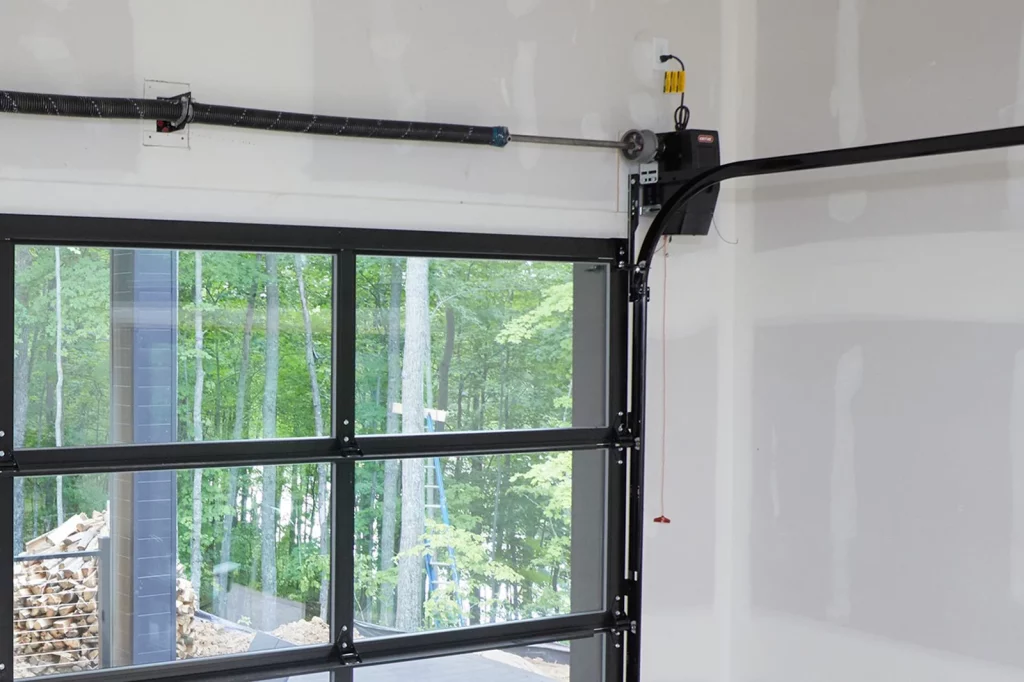Have you ever wondered about the lifespan of the device that effortlessly opens and closes your garage door? In this comprehensive guide, we delve into the intriguing world of garage door openers, exploring the factors that influence their durability and answering the question, “What is the Life Expectancy of a Garage Door Opener?” Gain insights into how you can prolong the life of this essential household device and make informed decisions about maintenance and replacement.

Exploring the Life Expectancy of a Garage Door Opener
Life Expectancy Of A Garage Door Opener: Factors at Play
Understanding how long a garage door opener is expected to last requires considering various factors that impact its overall lifespan. From the type of opener to usage patterns, each element plays a crucial role in determining how many years you can rely on your garage door opener.
Factors Influencing the Longevity of Garage Door Openers
- Opener Type: The type of garage door opener you have significantly influences its lifespan. Chain-driven openers, for example, tend to be more robust but may require more maintenance, while belt-driven and screw-driven openers offer quieter operation but may have different durability considerations.
- Frequency of Use: The more frequently a garage door opener is used, the more wear and tear it undergoes. Consider the daily cycles of opening and closing, as well as how many times the opener is activated within a given day.
- Regular Maintenance: Like any mechanical device, garage door openers benefit from regular maintenance. Lubricating moving parts, inspecting cables and springs, and ensuring the alignment of sensors can contribute to the longevity of the opener.
- Climate and Environmental Conditions: The climate in which your garage is located can impact the lifespan of the opener. Extreme temperatures, humidity, and exposure to elements may accelerate wear on certain components.
- Quality of Installation: The skill and precision with which a garage door opener is installed can affect its performance and lifespan. Professional installation ensures that all components work harmoniously, minimizing the risk of premature failure.
Understanding Different Types of Garage Door Openers
Diverse Types: Exploring Garage Door Opener Varieties
- Chain-Driven Openers: Known for their durability and affordability, chain-driven openers are a popular choice. However, the noise level during operation may be a consideration for homeowners.
- Belt-Driven Openers: Belt-driven openers offer a quieter alternative, making them suitable for garages near living spaces. They are ideal for those who prioritize a peaceful operation over cost.
- Screw-Driven Openers: Screw-driven openers are characterized by a lifting mechanism that moves along a threaded steel rod. While they require less maintenance than chain-driven openers, they may not be as quiet as belt-driven alternatives.
Prolonging the Life of Your Garage Door Opener
Tips for Extending the Life Expectancy Of A Garage Door Opener
- Regular Lubrication: Keep the moving parts of your garage door opener well-lubricated to reduce friction and ensure smooth operation. Consult the manufacturer’s recommendations for suitable lubricants.
- Check and Tighten Hardware: Periodically inspect and tighten any loose bolts, nuts, or screws on the garage door and opener. Vibrations from daily use can cause hardware to loosen over time.
- Balance the Garage Door: An imbalanced garage door puts additional strain on the opener. Ensure that your door is properly balanced by consulting a professional technician.
- Test Safety Features: Regularly test the safety features of your garage door opener, including the auto-reverse mechanism and photoelectric sensors. Ensure they function correctly to prevent accidents.
- Professional Maintenance: Schedule professional maintenance at least once a year. A trained technician can identify potential issues, replace worn-out components, and optimize the performance of your garage door opener.
Knowing When to Replace Your Garage Door Opener
Signs It’s Time: Recognizing When To Replace Your Garage Door Opener
- Excessive Noise: If your garage door opener has become noticeably louder over time, it could be a sign of wear and tear on internal components.
- Slow Operation: A significant decrease in the speed at which your garage door opens and closes may indicate mechanical issues with the opener.
- Frequent Repairs: If you find yourself consistently needing to repair your garage door opener, it may be more cost-effective to invest in a new, reliable unit.
- Outdated Safety Features: Older garage door openers may lack modern safety features. Upgrading to a newer model ensures the latest safety standards are met.
Read too: How to Open Garage Door Without Power From Outside Like a Pro? Unlock the Secrets
Conclusion
In conclusion, understanding the life expectancy of a garage door opener empowers homeowners to make informed decisions about maintenance, repairs, and potential replacements. By considering factors such as opener type, usage patterns, and regular maintenance, you can maximize the longevity of this essential household device. Whether you’re aiming to extend the life of your current opener or contemplating an upgrade, being knowledgeable about the factors at play ensures a smoother and more reliable operation.



Leave a Reply